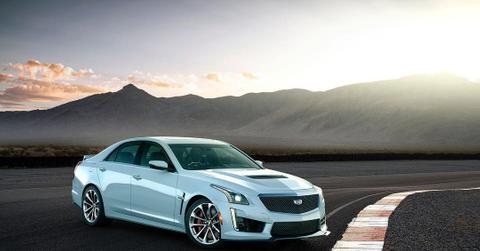General Motors To Release 20 Electric Vehicles By 2023
General Motors isn't the first automaker to announce a massive shift in electric vehicle production, but they're certainly one of the biggest to do so. 20 different models of their various brands will be electrified in the next five years.
Updated May 25 2019, 5:40 a.m. ET
General Motors is joining the trend of eliminating gasoline and diesel vehicles in their future. Two fully electric models from the manufacturer will be released next year, while 18 more will join the roster by 2023. They are looking toward a future where there’s zero deadly emissions through the use of electric battery and hydrogen fuel cells.
While other manufacturers like Volvo and Jaguar are entering into the EV market, this will be the first time a major automaker has made the declaration to release a large fleet of electric models. Popular brands under the GM corporation include Buick, Cadillac, Chevrolet, and GMC. It’s unknown which brands will be getting the electrification, but 20 total models will be created over the next five years.
Over two weeks ago, GM announced that they would be opening a new battery factory in China along with nearly electrifying all of their models by 2025. This was mostly due to the country’s aggressive zero-emission vehicle mandate which requires eight percent of new car sales to be of the cleaner variety by next year. Some of this likely played a role in their recent announcement.
“General Motors believes in an all-electric future,” Mark Reuss, the car manufacturer’s executive vice president of product development, said in a press release. “Although that future won't happen overnight, GM is committed to driving increased usage and acceptance of electric vehicles through no-compromise solutions that meet our customers' needs.”
The major automaker says that it will tap into the zero-emission strategy with both battery power and hydrogen fuel cells. The latter option has been met with some controversy over the years, especially with Tesla CEO Elon Musk. He argues that because hydrogen isn’t a source of energy itself, process like electrolysis to obtain it are very inefficient and expensive.
Indeed, creating vehicles with hydrogen fuel cells are expensive and requires a separate infrastructure than charging batteries. Still, GM is committed to the zero-emission alternative and will be implementing it into their Silent Utility Rover Universal Superstructure (SURUS). This is a new concept vehicle that will be powered by two electric motors, and these will likely resemble their future take on delivery and emergency service models.
GM didn’t announce an end date for gas or diesel vehicles, but the company has certainly changed their tune to EVs over the past decade. While the Chevy Bolt may not have the prestige of Tesla’s models, it was one of the very first mass-market EVs. They’ve also indicated their interest in autonomous driving, and made a note of that in the recent press release where they are looking toward a zero-crash future along with the elimination of carbon emissions.
